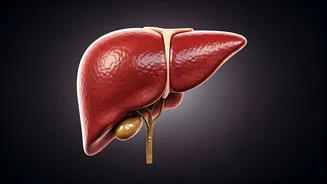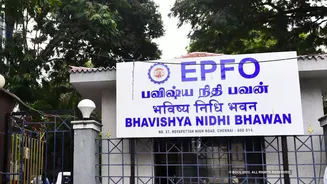Excessive Alcohol Consumption
One of the most well-known threats to liver health is excessive alcohol intake. The liver processes alcohol, and over time, regular heavy drinking can
lead to alcoholic liver disease. This encompasses a range of conditions, from fatty liver to cirrhosis, where the liver becomes scarred. Doctors recommend moderation or abstinence to safeguard your liver. The amount of alcohol that causes damage varies from person to person, but regular consumption beyond recommended limits significantly increases the risk. Considering the liver's role in filtering toxins, reducing alcohol intake is a fundamental step in promoting liver health and preventing long-term complications. Individuals should be aware of their limits and seek professional help if they struggle with alcohol dependency.
Unhealthy Dietary Choices
The food we eat plays a significant role in liver health. Consuming a diet high in processed foods, saturated fats, and added sugars can put undue stress on the liver. The liver is involved in processing and metabolizing nutrients, and a poor diet can lead to fat accumulation in the liver, contributing to non-alcoholic fatty liver disease (NAFLD). This condition is increasingly common and is closely linked to obesity and metabolic syndrome. To support liver health, experts suggest focusing on a balanced diet rich in fruits, vegetables, whole grains, and lean proteins. Reducing the intake of sugary drinks, fried foods, and highly processed items will reduce the burden on the liver, helping it function effectively. Also, a balanced diet is a key factor in weight management, which in turn benefits liver health.
Medication Overuse
Many medications, both prescription and over-the-counter, are processed by the liver. While medications are essential for treating various health conditions, overuse or misuse can strain the liver. Taking too much of certain medications, combining multiple drugs without medical supervision, or exceeding the recommended dosages can lead to drug-induced liver injury. This can range from mild inflammation to severe liver damage. It's crucial to follow your doctor's instructions for all medications and to be aware of potential side effects. Always inform your doctor about all the medications and supplements you take, and avoid self-medicating for prolonged periods. Being cautious about medication use is an essential step in protecting your liver from unnecessary harm.
Exposure to Toxins
The liver acts as a filter, removing toxins from the body. However, consistent exposure to environmental toxins can overwhelm the liver's capacity to detoxify. This includes exposure to harmful chemicals, such as those found in certain cleaning products, pesticides, and industrial pollutants. These substances can be absorbed through the skin, inhaled, or ingested, putting the liver at risk. It's important to be mindful of your environment and to take precautions to minimize exposure to toxins. This may involve using safer household products, avoiding areas with high pollution levels, and wearing protective gear when handling chemicals. Protecting your liver from unnecessary toxin exposure is a proactive measure in maintaining its optimal function and preventing potential damage.
Lack of Exercise
Regular physical activity supports overall health, including liver function. A sedentary lifestyle is associated with a higher risk of non-alcoholic fatty liver disease. Exercise can help manage weight, improve insulin sensitivity, and reduce fat accumulation in the liver. Incorporating regular physical activity into your routine is vital for maintaining liver health. Aim for at least 150 minutes of moderate-intensity exercise or 75 minutes of vigorous-intensity exercise per week, as per recommendations. This can include activities like brisk walking, jogging, cycling, or swimming. Consistent exercise not only benefits your liver but also enhances overall health and well-being, contributing to a healthier lifestyle.
Unsafe Sexual Practices
Hepatitis viruses, especially hepatitis B and C, can cause severe liver damage. These viruses are often transmitted through unsafe sexual practices. Engaging in unprotected sex with multiple partners increases the risk of contracting these infections, which can lead to chronic liver diseases, including cirrhosis and liver cancer. Practicing safe sex, such as using condoms, is vital in preventing the spread of these viruses. Getting vaccinated against hepatitis B is also crucial for protecting yourself. Regular check-ups and screenings can help detect infections early, allowing for timely treatment and preventing further complications. Prioritizing safe sexual practices is a significant step in safeguarding your liver health and overall well-being.
Poor Hygiene Habits
Certain hygiene practices can affect liver health, particularly regarding the transmission of hepatitis viruses. Hepatitis A, for instance, is often spread through contaminated food or water, as well as through poor hygiene. Simple steps, such as washing your hands thoroughly before eating or preparing food and after using the restroom, can significantly reduce the risk of infection. Similarly, avoiding sharing personal items, such as razors and toothbrushes, can prevent the spread of hepatitis B and C. Maintaining good hygiene habits is a simple yet effective way to protect your liver from harm. These preventive measures are crucial for protecting your liver from infections and promoting a healthier lifestyle.














